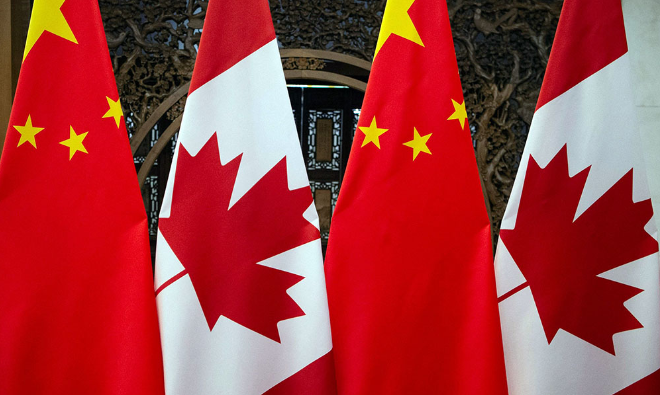China appears to be retaliating against Canada by sanctioning Uyghur and Tibetan rights advocates.
(TibetanReview.net, Dec23’24) –In what is seen as a strike back against Canada, China has declared the imposition of sanctions against two Canadian organizations and several individuals associated with them, concerned with Tibet and Xinjiang issues. Earlier, on the UN-declared international Human Rights Day of Dec 10, Canada announced sanctions on eight former and current senior Chinese officials, citing gross and systematic human rights violations in the Xinjiang region, Tibet and against Falun Gong followers.
Citing the country’s Anti-Foreign Sanctions Law, the Chinese foreign ministry said Dec 22 that those placed on the sanctions list are the Uyghur Rights Advocacy Project, the Canada Tibet Committee and 20 people from these two organisations.
Their assets within China have been frozen, all transactions and cooperation projects have been banned, and persons on the list have been barred from entering China, including Hong Kong and Macau, from Dec 21, the ministry has said.
Of the persons on the list, 15 are members of the Uyghur Rights Advocacy Project and the rest are from the Canada Tibet Committee, reported the scmp.com Dec 22.
The countermeasures were taken after Canada announced earlier this month sanctions against eight former and serving Chinese officials, citing so-called human rights violations in Xinjiang and Xizang, the official chinadaily.com.cn Dec 23 cited the Foreign Ministry announcement as saying.
China decided to impose countermeasures in order to safeguard national sovereignty, security, and development interests, as well as to protect the legitimate rights and interests of Chinese citizens and organizations, reported China’s official globaltimes.cn Dec 23, citing Foreign Ministry spokesperson Mao Ning.
“We once again strongly urge Canada to stop interfering in China’s internal affairs in any way and to cease the political manipulation of human rights issues,” Mao has said.
The big difference between the Canadian sanction and China’s counter-sanction is that the former listed party-government officials, including Chen Quanguo, the former Communist Party chief of Xinjiang (as well as Tibet Autonomous Region, or TAR, before that), and Wu Yingjie, former party head of TAR, whereas the latter targets non-governmental campaigners.
Besides, the Canadian sanctions sought to punish violators, whereas the Chinese sanctions seek to punish rights monitors and defenders.
The Chinese government has been accused of detaining over a million Uyghurs and other Muslim minorities in what it describes as “re-education camps” in the Xinjiang Uyghur Autonomous Region. Reports indicate that detainees are subjected to forced labour, political indoctrination, and, in some cases, torture and sexual abuse.
China after invading Tibet annexed it in 1951, calling it a “peaceful liberation” from foreign imperialism and feudal serfdom. It is accused of being out to destroy the territory’s ethnic, cultural and linguistic identity in the name of Sinicization.













